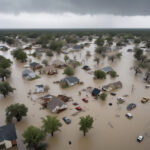In a significant disruption to telecommunications, Verizon’s network outage affected thousands of customers across major cities in the United States, including Chicago and Seattle, marking a major event in the telecommunications sector. Occurring on October 3, 2024, the outage drew intense scrutiny from the Federal Communications Commission (FCC), which has initiated an investigation into what caused this widespread disruption.
The outage began around 9:30 a.m. ET, with reports peaking at over 105,000, according to data from Downdetector. Various locations, including Minneapolis, Phoenix, Omaha, and Denver, faced substantial connectivity issues, hampering user access to basic services. For many, this loss of service not only meant losing internet connectivity but also led to significant inconveniences across business operations and daily activities.
The nature of the disruption varied for users, with some iPhone customers experiencing a status change to “SOS” mode. This particular mode indicated that while their devices were disconnected from Verizon’s network, emergency calls could still be placed via alternative carriers. Notably, AT&T reported no similar outage, even though customers highlighted related issues.
While Verizon managed to restore services the same day, the company refrained from disclosing the exact cause of the disruption. This lack of transparency has raised questions about the reliability of service and the preparedness of telecommunication giants to handle such unforeseen events. It is crucial in today’s digital age, where connectivity is paramount, to ensure that such outages are minimized and handled with timely and accurate communication.
The incident notably came to light shortly after Verizon announced a substantial $3.3 billion deal with Vertical Bridge, an infrastructure firm. This agreement will see Verizon acquire rights to lease and manage over 6,000 mobile towers across the U.S. The timing has left many industry observers wondering if there’s a correlation between the infrastructure expansion and the sudden network failure.
Verizon’s commitment to enhancing its infrastructure is commendable, but as this instance suggests, improvements must align with operational reliability. Customers rightfully expect that expansions and upgrades lead to improved service rather than unexpected outages. These events often serve as critical reminders that telecommunication companies need to prioritize not only rapid growth but also seamless service.
FCC’s involvement signals the seriousness of this incident in relation to network reliability and consumer trust. The investigation aims to ensure that companies like Verizon uphold high standards of service while addressing the underlying issues that led to such widespread disruption. For consumers, the implications are significant; the findings may influence regulations related to service outages and could drive companies to adopt more robust contingency measures.
The recent Verizon outage also exemplifies the fragile nature of modern telecommunications, wherein a single failure can have ripple effects, impacting residential customers and businesses alike. As companies increasingly rely on digital platforms for operations, any disruptions can translate into lost revenue and damaged reputation.
Actions by the FCC may encourage Verizon and similar entities to implement better transparency protocols and sensitive outage management plans. Moving forward, a strategic focus on enhancing infrastructural resilience alongside customer communication could help restore public faith in service providers.
This incident has not only highlighted the vulnerabilities in the sector but also serves as a case study for other providers to learn from. As the telecommunications landscape continues to transform with the introduction of new technologies and the demands of a digitally interconnected society, staying ahead in customer service and infrastructure resilience is more critical than ever.
The public, particularly Verizon subscribers, will be keenly monitoring FCC developments in the wake of this incident. Consumer confidence can hinge on how quickly and effectively situations like these are managed. This report serves as an essential reminder that the roots of connectivity lie in accountability, transparency, and above all, a commitment to consumer service excellence.
Verizon and other telecom providers must take this opportunity to reassess their crisis management protocols and invest appropriately in infrastructure resilience to prevent future outages. The lesson is clear: reliability in service is paramount and must be prioritized in an industry that is integral to everyday life.
Verizon has yet to comment on the investigation by the FCC, but consumers will undoubtedly expect a thorough explanation and assurance that measures will be implemented to prevent similar occurrences in the future.












